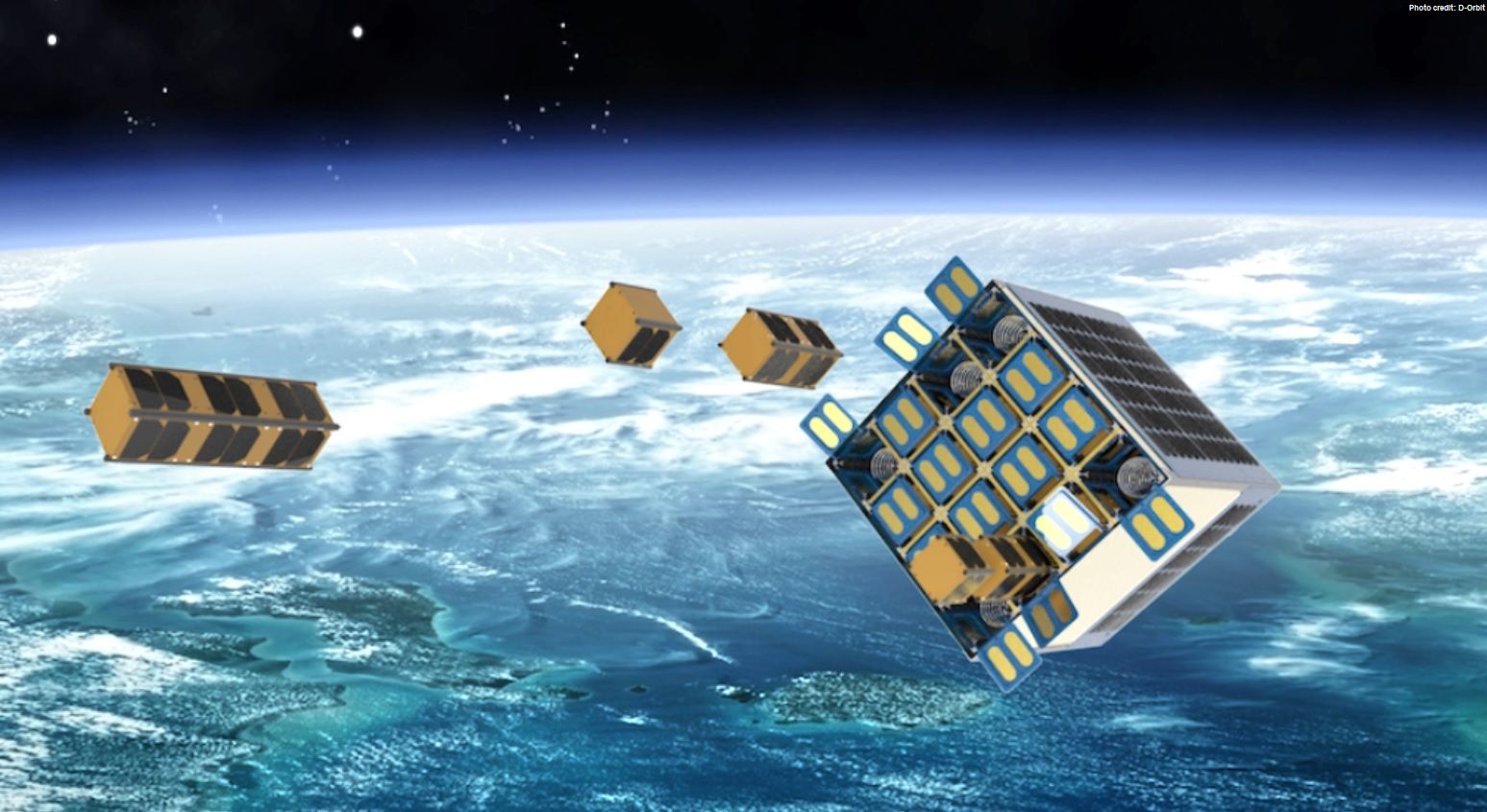
🛰️ First commercial “space taxi” service for satellites into orbit demonstrated
D-Orbit has made the first ever completion of a commercial “space taxi” service for satellites, deploying satellites into dedicated orbits from a deployer module that was itself launched into orbit on a carrier rocket.
Share this story!
Italian space technology company D-Orbit has successfully completed the first last-mile delivery of satellites into dedicated orbits using their In-Orbit Now (ION) satellite carrier module, being the first commercial space company to do so. The ION, carrying twelve SuperDove satellites from the company Planet, was launched into space on a Vega rocket and then dropped off the twelve satellites one by one into their dedicated orbits during a campaign lasting two months. The mission was dubbed ORIGIN by the company.
The novelty here is the transportation of satellites from where they’re dropped off from the rocket to their destination orbits. In a typical rideshare launch where small satellites are launched together with a big payload, essentially piggy-backing on the main payload’s launch, the carrier rocket would normally target a trajectory suitable to take the main payload to its desired orbit while deploying the piggy-backers where it’s most fitting. This is not always the destination orbit, but a relatively cheap access to space. For Planet, the case has earlier been to rely on drag to gradually move the satellites into the right orbits after a rocket has dropped them off, meaning that there’s a little bit of waiting time before the satellite reaches its right orbit and can begin its nominal use.
What the Italians have now done is to bridge that gap. The ION carrier flies around in orbit itself (having been pushed out into that orbit from the rocket) until it has reached all the points where satellites should be dropped off. It has then dropped them off into each one’s target orbit. One could compare with what a taxi does when transporting kids home from school.
Watch the deployment of a @planetlabs SuperDove from ION #Satellite Carrier! After reaching the requested orbital position and receiving the command from the ground, ION releases the #spacecraft with precision, positioning it along the orbit, enabling the starting of operations. pic.twitter.com/19ZlOpKxL7
— D-Orbit (@D_Orbit) November 4, 2020
“Many people talk about this upcoming market of in-orbit transportation or last-mile delivery, filling the gap between the drop off condition provided by the launch vehicle and the target orbit relevant for the operational or business purposes of the end users,” said D-Orbit’s CCO Renato Panesi when interviewed by SpaceNews. “We have been able to fill that gap. We are the first in the world to do that,” he says.
The company website (Nov 29th, 2020) also highlights the achievement at the end of a months long feed of mission updates: “It is the first time in the history of the space industry that a company is able to successfully validate in space its precision deployment technology.” Luca Rossettini, the company’s CEO, agrees that it’s historical. Quoted on SatNews, he says: “For the first time, a cargo satellite has successfully deployed a dozen Earth Observation satellites into their operational position.”
The next ION is set to launch already in December. In the future, D-Orbit also plans to carry out the same service in reverse: to “retrieve satellites to deorbit them”, as said by Bruno Carvalho, the company’s VP for business development, during a webinar earlier this year according to SpaceNews. This means that a satellite is removed from orbit to avoid it staying around as space junk after it is no longer in use.
D-Orbit’s space delivery business is being funded by the European Investment Bank (EIB) with some 15.000.000 Euros. This is the first time that the EIB backs a company in the space sector.
Planet’s SuperDove satellites are used for Earth imaging purposes. The twelve satellites deployed by D-Orbit in the ORIGIN mission join a group of more than 150 satellites that the company operates in space.
Photo credit: D-Orbit
By becoming a premium supporter, you help in the creation and sharing of fact-based optimistic news all over the world.


